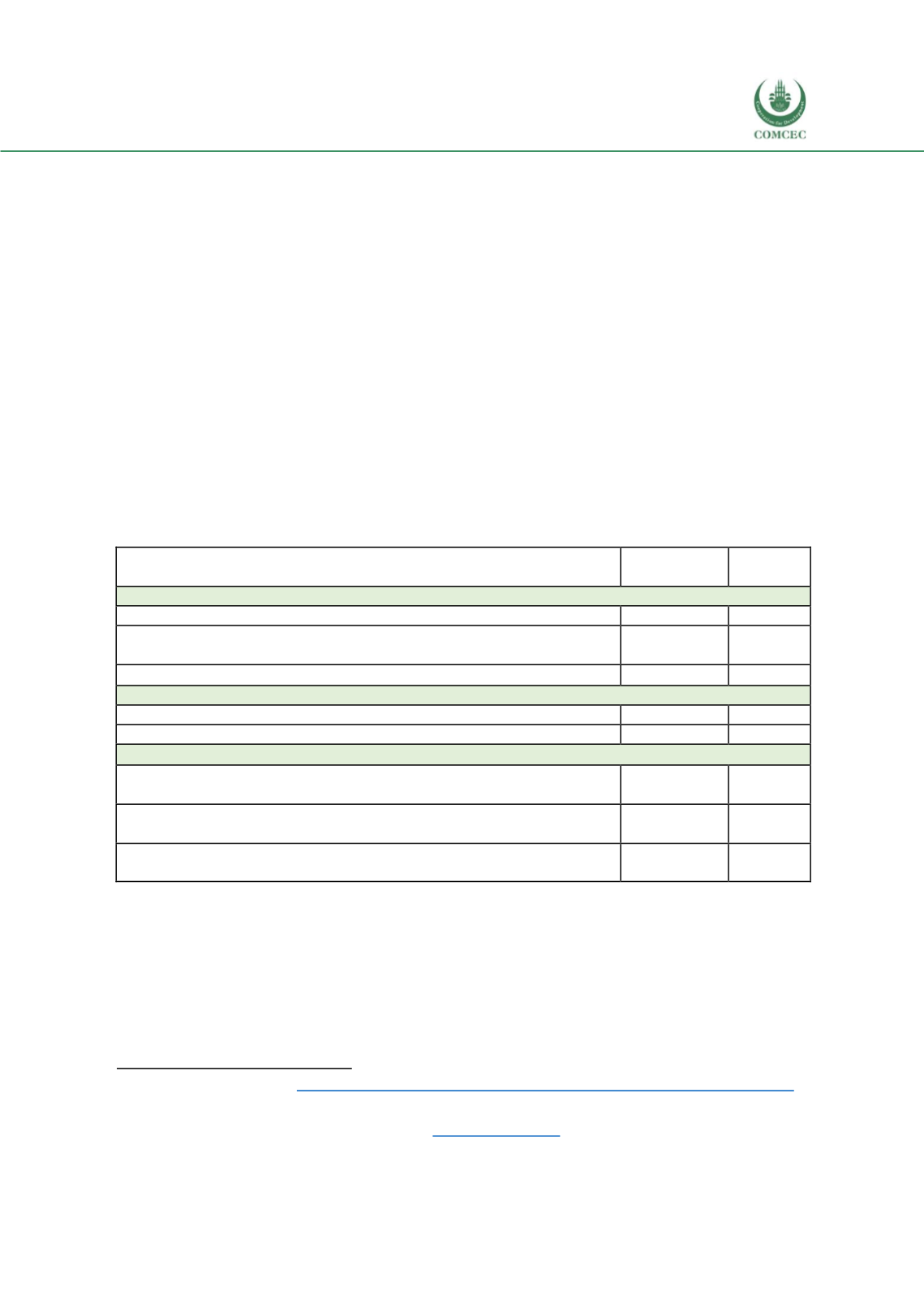

Increasing the Resilience of the Food Systems
In Islamic States in Face of Future Food Crises
57
The U.S. ranks highly in food affordability. This is clearly reinforced by its highly developed
economy, with robust income protection through several nutrition programs, such as the
Supplemental Nutrition Assistance Program (SNAP). SNAP disbursed $60.9 billion in 2019.
200
Affordably and access is supported by leading transportation infrastructure, where the U.S. is
ranked seventh in the world. It has an advanced retail market infrastructure.
Food safety in the U.S. is well established, with the country recognized as having among themost
advanced ecosystems for ensuring high quality, safe food,
201
fortified by strict standards and
enforcement by both the Food and Drug Administration (FDA) and the U.S. Department of
Agriculture (USDA).
However, despite extensive government programs,there are notable vulnerabilities in accessing
food in the U.S. Fifteen million households (representing 11.8% of households) were food-
insecure in 2017,
202
and the Centers for Disease Control (CDC) estimates that, each year, 48
million people get sick from a foodborne illness, 128,000 are hospitalized, and 3,000 die. In
response, the Food Safety Modernization Act was passed in 2011, broadening the FDA 's scope
across the food and beverage value chain.
203
Table 28: U.S. - SummaryMetrics
Metrics
U.S.
Performance
Global
Average
Availability
Average food supply (kcal/capita/day)
3,682
2,866
Volatility of agricultural production (standard deviation of growth in
production over last 20 years)
0.08
0.1
Food loss (ratio of post-harvest/pre-consumer losses to total supply)
0.96
5.6
Access
GDP per capita ($ at PPP)
$59,390
$22,024
Food consumption as a share of household expenditure (%)
6.4%
29.5%
Utilization
Diet diversification (share of non-starchy foods in dietary
consumption)
76
52.5
Protein quality (composite score based on the extent of the presence
of nine amino acids, assessed out of 100)
83.7
58
Access to potable water (% of the population with access to basic
drinking water)
99.2
86
Source: EIU Food Security Index
Food Insecurity and Crises in the U.S.
Overall, food insecurity in the U.S. has fluctuated over the last two decades, correlating largely
with economic conditions. It reached a low of 11.1%during the 2007–2009 economic recession
200
USDA. (n.d.). Retrieved fro
m https://fns-prod.azureedge.net/sites/default/files/resource-files/34SNAPmonthly-4.pdf201
The Conference Board of Canada. (2014). 2014World Ranking: Food Safety Performance Report.
202
USDA. (2017) Key Statistics and Graphics.
203
Centers for Disease Control and Prevention websit
e. https://www.cdc.gov/















